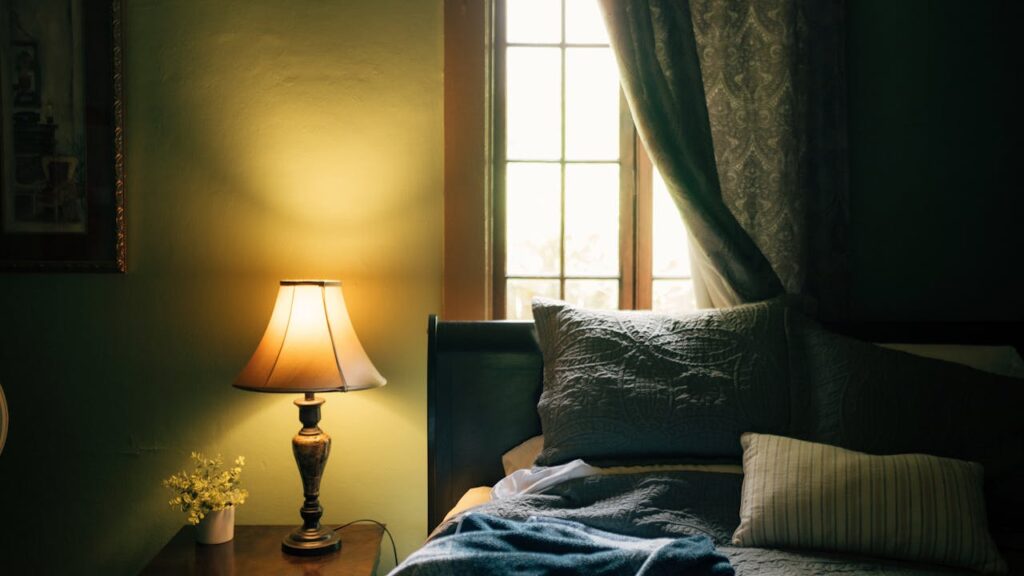3:36 AM, I read on my phone. It’s a Monday night in the middle of my summer break, and I’m restlessly shifting under my covers. I keep yawning, hoping to coax my body into the sleep I desperately need. But it never comes. I finally turn on the lights to scroll on my phone as the hours tick by, until I notice the first rays of sunlight sneaking through the blinds. Another sleepless night.
What is Insomnia?
Insomnia is classified as a sleeping disorder, which can involve not getting enough sleep, difficulty falling or staying asleep, or generally poor sleep quality. According to Healthline, “Up to 39% of adolescents experience insomnia”. As bad as it sounds, it’s become a reality for many students and adults. For example, on a typical school night, my friend Kevin faces two scenarios: either he goes to sleep at 9 PM and wakes up at 1 AM to finish homework, or he stays up until 2 AM and then wakes up at 6 AM for his early bird class.
Insomnia can range from a minor inconvenience, affecting someone only briefly, to a significant disruption that leads to life-long health problems. Insomnia doesn’t just impact nighttime sleep; it can cause daytime symptoms as well. For example, some daytime effects may include drowsiness, delayed reflexes, poor memory, impaired performance at work or school, mood disturbances, and more. These symptoms can escalate into more serious health concerns. The National Library of Medicine highlighted that “several studies of adolescents, including one with more than 3,000 high school students, found that inadequate sleep is associated with higher levels of depressed mood, anxiety, behavior problems, alcohol use, and attempted suicide”. Pretty alarming, right? This emphasizes the importance of sleep in our lives. But if sleep is so crucial, why do these sleep disorders occur? What triggers these night time disturbances?
Although experts aren’t entirely sure how insomnia develops, there are many factors that could cause or contribute to it. This could include life circumstances like jet lag, external stress, irregular sleep patterns, poor sleeping habits, family genetics, illness, and more.
Types of Insomnia
There are two primary types of insomnia: acute and chronic. Acute insomnia typically involves sleep difficulties that only last a few days or weeks. Chronic insomnia, which is often diagnosed by a doctor, occurs at least three nights a week for three months or more.
Treating Insomnia
If insomnia is left untreated, it can result in prolonged sleep deprivation, which may cause serious consequences such as lower quality of life and higher risk of substance abuse, chronic pain, heart disease, and diabetes.
Before resorting to medication, consider making lifestyle changes that improve your sleep start by practicing better sleep hygiene, which involves adopting healthier sleep habits. For instance, if you’re accustomed to going to bed at 2 AM, try gradually adjusting your bedtime by 15 minutes each night until you reach a healthier sleep schedule. If stress is the root of your insomnia, engage in stress-relief activities such as meditating, listening to soothing music, or taking a warm bath or shower. If none of these strategies work, medicines like melatonin may help to promote sleep and help keep you asleep. However, you should use these with caution as it can lead to potential side effects.
Conclusion
Many of my high school friends, including myself, struggle with insomnia, especially during these past couple of years. The pressure of balancing our academics, extracurriculars, and this year, applying for college applications, means countless sleepless nights, gradually taking a toll on our mental and physical health. However, it’s important that we address these issues early on. In the words of Kevin, “If you don’t want to die young, sleep earlier.” Ironic, isn’t it.
References:
-
- 12 tips for better sleep hygiene. (2020, August 17). Healthline. https://www.healthline.com/health/sleep-hygiene
- Colten, H. R., Altevogt, B. M., & Research, I. of M. (US) C. on S. M. and. (2006). Extent and health consequences of chronic sleep loss and sleep disorders. In Sleep Disorders and Sleep Deprivation: An Unmet Public Health Problem. National Academies Press (US). https://www.ncbi.nlm.nih.gov/books/NBK19961/
- Insomnia. (n.d.-a). Retrieved August 20, 2024, from https://www.hopkinsmedicine.org/health/conditions-and-diseases/insomnia
- Insomnia: Symptoms, causes, and treatments. (2018, October 13). Sleep Foundation. https://www.sleepfoundation.org/insomnia
- Insomnia: What it is, causes, symptoms & treatment. (n.d.-b). Cleveland Clinic. Retrieved August 20, 2024, from https://my.clevelandclinic.org/health/diseases/12119-insomnia
- H. Kuang, personal communication
- Understanding insomnia in teens and what you can do about it. (2024, May 9). Healthline. https://www.healthline.com/health/insomnia/insomnia-in-teens
- What causes insomnia? (2018, October 18). Sleep Foundation. https://www.sleepfoundation.org/insomnia/what-causes-insomnia
Discover more from medicineconnect.org
Subscribe to get the latest posts sent to your email.

You did such a wonderful job! I really enjoyed reading it. I am very proud of you!
An enjoyable and informative read! Insomnia is a common problem among teenagers which can potentially linger into adulthood. Early intervention by forming a good sleep hygiene will have life-long benefit.
I really enjoyed reading your article. It is very educational and informative.